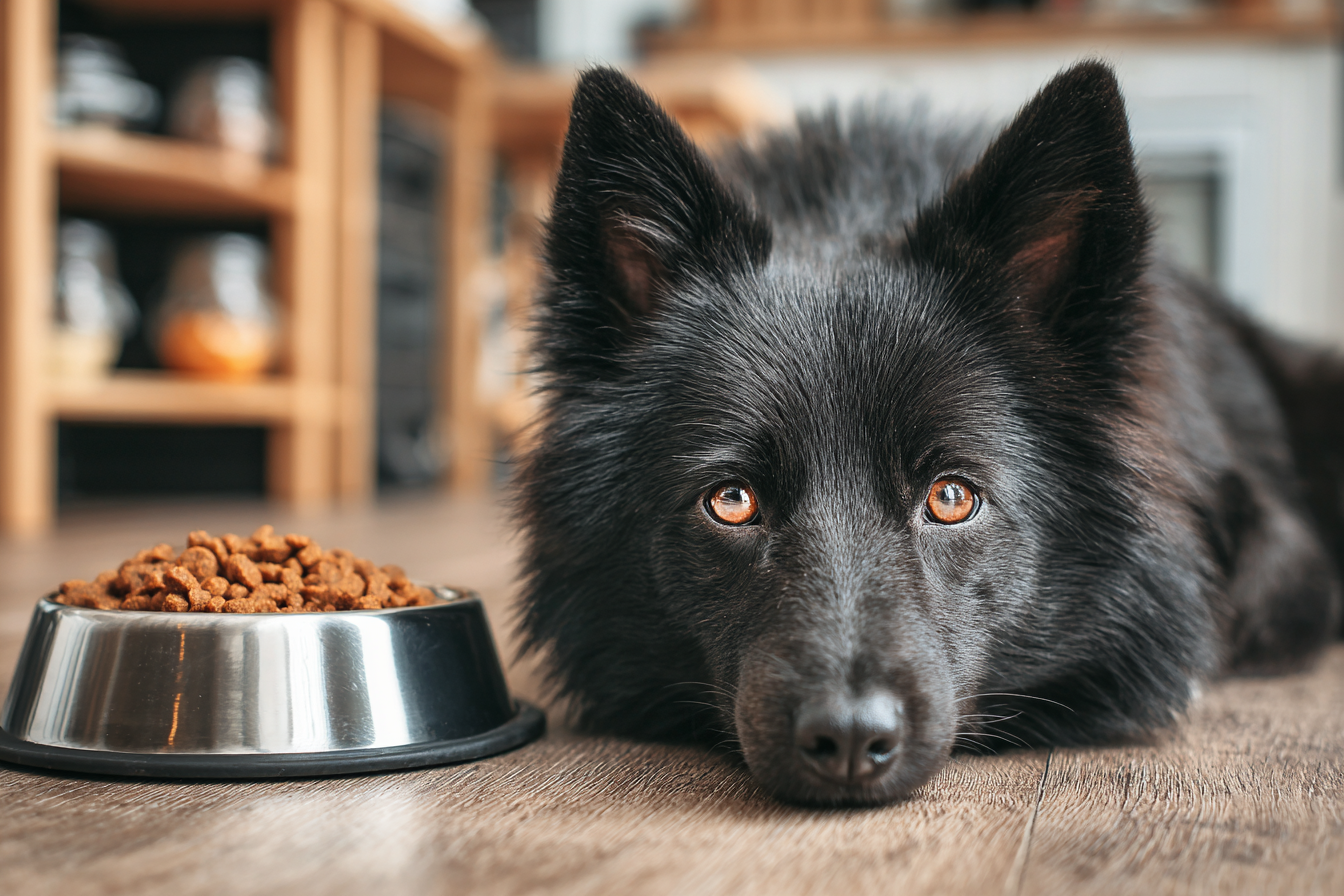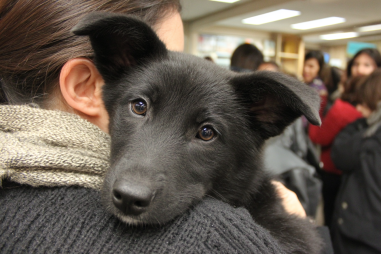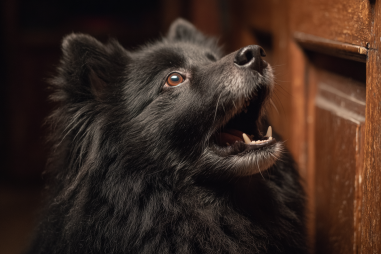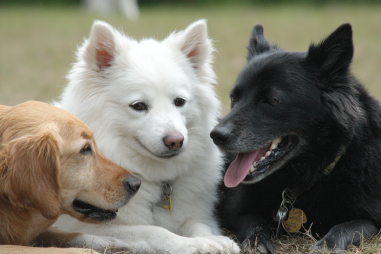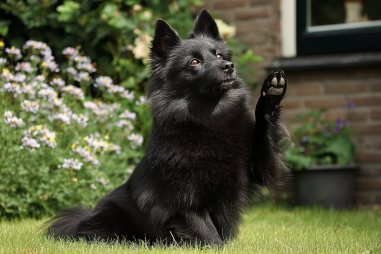Maintaining a healthy weight is essential for the well-being of your Schipperke. These lively little dogs are full of energy and personality, but they can be prone to gaining excess weight if their diet and exercise aren’t carefully managed. Just like with any breed, obesity in Schipperkes can lead to serious health issues, including joint problems, diabetes, and a reduced quality of life. In this guide, we’ll explore how you can effectively manage your Schipperke’s weight with a balanced diet, helping your furry friend stay fit, happy, and healthy for years to come.
Risks of Obesity in Schipperkes
Obesity isn’t just a cosmetic issue for dogs; it significantly impacts their health. Schipperkes, despite their small size, can be just as affected by excess weight as larger breeds. Carrying extra pounds puts extra strain on their joints, especially given their energetic and agile nature. This can lead to arthritis or exacerbate existing joint issues over time. Additionally, excess fat can increase the risk of heart disease, respiratory problems, and metabolic conditions such as diabetes.
Beyond the physical health risks, obesity can reduce your Schipperke’s overall quality of life. Overweight dogs tend to have less energy, get tired easily, and are less inclined to participate in play or exercise. This can create a vicious cycle where lack of activity leads to more weight gain. Preventing obesity from the start or addressing it promptly is one of the best ways to ensure your Schipperke remains vibrant and active.
Calculating Ideal Weight and Portions
Knowing your Schipperke’s ideal weight is the first step to effective weight management. On average, a healthy adult Schipperke weighs between 10 to 16 pounds (4.5 to 7.3 kg), but this can vary depending on your dog’s build, age, and sex. The best way to assess their weight is by feeling their ribs without too much fat covering and observing their waistline from above and the side; they should have a noticeable tuck behind the ribs.
Once you determine a target weight, portion control becomes crucial. Overfeeding is a common culprit behind weight gain. Use the feeding guidelines on your dog food packaging as a starting point, but tailor the amounts according to your Schipperke’s activity level and metabolism. Many vets recommend dividing daily food portions into two or three smaller meals to maintain energy levels and prevent begging behaviors.
To aid portion control:
- Use a kitchen scale or measuring cups to ensure accuracy.
- Avoid free-feeding (leaving food out all day).
- Consider a weight management dog food formula with balanced calories.
Choosing the Right Dog Food
The quality of your Schipperke’s food plays a huge role in their weight management. Look for dog foods that are formulated for small breeds and geared toward weight control. These should have high-quality protein sources to maintain muscle mass while being lower in fat and calories.
Be cautious of fillers like corn, soy, and excessive carbohydrates, which can contribute to weight gain without delivering adequate nutrition. Opt for foods rich in lean meats, vegetables, and wholesome grains. Ingredients such as chicken, turkey, fish, sweet potatoes, and brown rice are excellent choices.
Additionally, some dogs benefit from foods rich in fiber to promote a feeling of fullness and aid digestion. Grain-free or limited ingredient diets could be suitable for Schipperkes with food sensitivities, but always consult your vet before making a switch.
Healthy Treat Options
Treats are a great way to reward your Schipperke, but they can quickly add extra calories if not chosen wisely. Instead of high-fat commercial treats, consider nutritious, low-calorie alternatives that support your dog’s health without sabotaging their diet.
Here are some healthy treat options for weight-conscious Schipperkes:
- Small pieces of cooked lean meats like chicken or turkey (without seasoning or bones)
- Fresh vegetables such as baby carrots, green beans, cucumber slices, or small broccoli florets
- Freeze-dried liver treats, used sparingly
- Low-fat cottage cheese or plain Greek yogurt in very small amounts
Remember to factor treats into your dog’s daily calorie count. Treats should not exceed 10% of the total daily calories to avoid weight gain. Avoid human junk food, sugary snacks, or anything with artificial additives.
Exercise Combined with Diet
Diet alone won’t keep your Schipperke in prime shape. Regular physical activity is essential to burn calories, build muscle, and maintain cardiovascular health. Schipperkes are energetic dogs that enjoy mental stimulation and physical challenges.
Here are some exercise ideas that pair well with a weight management diet:
- Daily brisk walks, tailored to your dog’s stamina
- Interactive play sessions, such as fetch or tug-of-war
- Training sessions that include movement and brain games
- Dog sports like agility or scent work
The amount and type of exercise should reflect your dog’s age and health status. Combining consistent exercise with a balanced diet is the most effective way to shed unwanted pounds and keep them off.
Monitoring Progress
Regularly tracking your Schipperke’s weight and physical condition helps you spot any undesirable trends early. Weigh your dog at home once every week or two, ideally at the same time of day for consistency. Also, observe changes in their body shape and energy levels.
Maintain a journal or log to note weight, food intake, treats, and exercise to see what strategies work best. If your Schipperke isn’t losing weight despite your efforts, consider adjusting portion sizes, switching to a different food, or increasing exercise. Be patient—healthy weight loss in dogs should be gradual, around 1-2% of body weight per week.
Consulting Your Vet
Your veterinarian is an invaluable partner in managing your Schipperke’s weight. Before making any significant changes to diet or exercise, schedule a veterinary visit to rule out underlying medical conditions that might impact weight, such as hypothyroidism or other metabolic issues.
Your vet can help determine your dog’s ideal weight, recommend appropriate food and portion sizes, and suggest safe exercise plans. They can also monitor your dog’s progress and adjust recommendations as needed.
In some cases, specialized weight management diets or supplements may be advised. Never put your dog on a crash diet or feed them human diet foods without professional guidance—it can be dangerous.
Keeping Your Schipperke Healthy and Happy
Managing your Schipperke’s weight through a balanced diet and exercise routine is a rewarding commitment that pays off with a healthier, happier pet. By understanding the risks associated with obesity, carefully measuring portions, selecting nutritious foods, offering healthy treats, and incorporating regular exercise, you’ll set your dog up for a long life full of vitality.
Remember that every dog is unique, so be attentive to your Schipperke’s specific needs and consult your vet throughout the process. With consistency, patience, and plenty of love, your Schipperke can enjoy the best that life has to offer—one healthy meal and playtime at a time.

